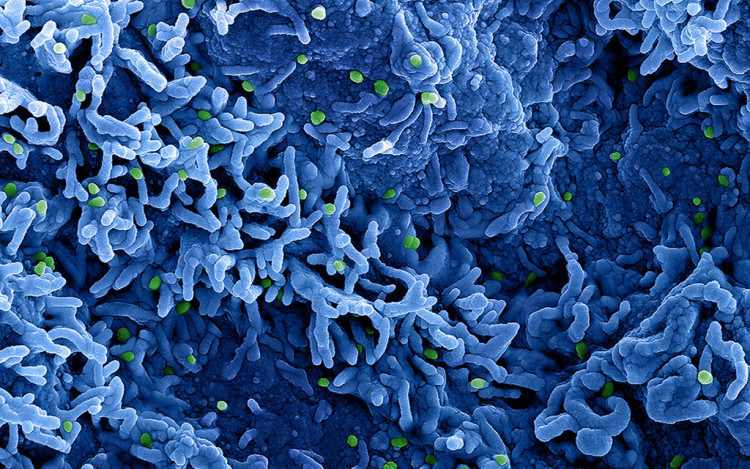The US Centers for Disease Control and Prevention (CDC) revealed the monkeypox virus may survive for days on blankets, sofas, coffee machines, computer mouse, and light switches.
The CDC report stated that researchers discovered the monkeypox virus on 70% of "high-contact regions" twenty days after the onset of symptoms. However, no live virus was detected, suggesting a low risk of infection.
The national public health agency of the United States noted that cleaning and disinfecting might have contained contamination in the residence. The WHO has already initiated a research to determine if genetic alterations are to blame for the global spread of monkeypox.
The CDC previously said that monkeypox may be transmitted by person-to-person contact, respiratory secretions, and face-to-face contact, including intimate physical contact such as kissing, snuggling, and intercourse. The latest CDC recommendation states that monkeypox may be transmitted sexually.
At the moment, the virus has spread to at least 92 countries, and 35,000 cases have been identified globally.
Clade I and Clade II are two different variations discovered by the WHO. The health department said that Clade II was subdivided into two sub-clades called IIa and IIb.
The global health organization underscored that the virus may be prevented by avoiding close, skin-to-skin contact with persons who have a rash resembling monkeypox and avoiding contact with "items and materials" used by a person with monkeypox.
Earlier this month, experts warned that China faces risk of imported monkeypox epidemic as the virus is rapidly spreading in the world, noting that the country should maintain high vigilance, strict monitoring and timely alert signals to prevent the zoonotic infectious disease.
Gao Fu, former head of the Chinese Center for Disease Control and Prevention, said China must prepare for the extremely probable future importation of monkeypox, which is highly likely to occur when the country opens its borders. To aid researchers in developing defenses against monkeypox virus, he urged that authorities maintain heightened alert, perform stringent monitoring, and offer timely warning signals.
Moreover, Gao urged investment in vaccinations, particularly in mRNA vaccine technology research and development. "The effects of attenuated vaccines on the human immune system are not well understood. It would be better to develop an mRNA or protein-based vaccine," he stated.
In July, Wu Zunyou, chief epidemiologist of the Chinese Center for Disease Control and Prevention, claimed that monkeypox will not cause a mass infection in China. As a result of its restricted method of transmission, he said that monkeypox would not cause a large-scale epidemic in the country as COVID-19 did.
However, when it does come, it will likely strike males who have sex with other men first and then spread to other groups. Wu noted that, while monkeypox is not a sexually transmitted illness, 95 percent of cases recorded in the United States and Europe were transferred via sexual activity, with the greatest risk of infection among males who had intercourse with other men.






